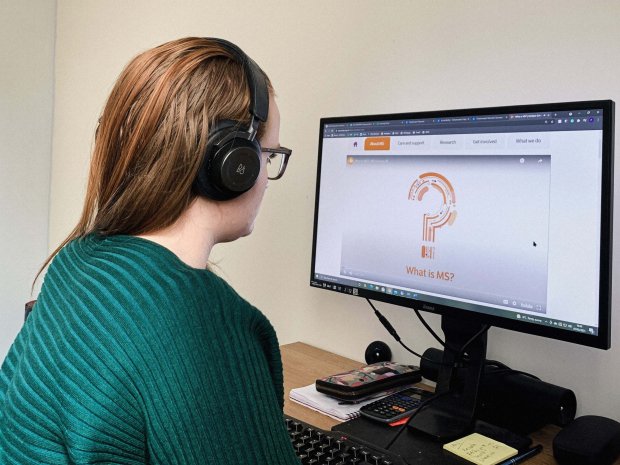
Our policies on employment and MS
People with MS should be able to find good jobs, and keep working for as long as is right for them.
Like everyone, people with MS want to be able to find a good job, which matches their skills and experience, and fits around their other commitments. They want to be able to stay in work for as long as is right for them. And when they can no longer work due to their condition, they want to know they'll be able to live independently, and with dignity.
Sadly, for many people with MS, these things are out of reach. This is because they don't get the right support from the Government or employers.
Looking for and moving into work
The employment rate for people with MS is 41%, while for non-disabled people it is 81% [MS Society, Employment without barriers - employment that works for people with MS, PDF 1.29 MB]. People with MS who are unemployed can find it hard to get into the job market. While those currently in work sometimes give up looking to take the next step in their career.
This isn't for lack of trying. People with MS often don't have the right support, including from the Government, to find jobs which work for them. There are too many potential employers who won't understand their condition, or support them.
The Government needs to improve support for helping people with MS find and move into suitable work, including:
- Allowing people to know what Access to Work awards they'll be able to get before starting work.
- Allowing everyone who receives Access to Work support to access the new Adjustments Passport. The Passport gives an up-to-date record of the adjustments someone is currently using and any future in-work support needs they may have.
- Legally requiring all employers to give their employees the option to work flexibly from day one of their employment.
Staying in work
Most people with MS start getting symptoms during the peak of their working lives, and 80% retire within 15 years of their diagnosis [Zwibel, Health and quality of life in patients with relapsing remitting MS: making the intangible tangible]. Many say leaving work was the right thing to do, usually because their MS symptoms had made working too hard. But sadly, others were forced to leave work earlier than they wanted to. This was often because they couldn't get the support they needed from their employer or the Government to stay in work, and return to work following disability-related absence.
The Government needs to improve support to help people with MS stay in work for as long as is right for them, including:
- Taking stronger action against employers who fail to put in place reasonable adjustments.
- Strengthening the Equality Act duty to make reasonable adjustments. This should include making employers give a written response to employees’ requests for reasonable adjustments within two weeks, and give a timeframe for when the adjustments will be put in place.
- Improving statutory sick pay (SSP) by allowing people to claim SSP from the first day they are ill, and bringing the SSP rate in line with National Living Wage. The proposals for SSP reform in the Government’s Health is Everyone’s Business consultation [pdf, 466KB] should also be taken forward.
- Improving the application and renewal process for Access to Work, and reducing delays. Assessments should be more holistic and more needs to be done to raise awareness of the scheme.
Leaving work
The decision to leave work can be challenging for people with MS, where they have to weigh up their health needs with financial and emotional worries. Sadly, too many haven't been able to leave work when it suited them, in a way that worked for them. Having an unsuccessful exit can be distressing for people with MS and may cause their symptoms to get worse.
More needs to be done to make sure people with MS get the support they need to move out of work successfully and with dignity:
- Employers should follow policies to support people with MS to have a dignified exit from work, when it's right for them.
- Employers and the Government should improve support given to disabled people to help them access benefits and support once they've left work.
- The Government should make sure the welfare system provides adequate and appropriate support to those who can't work due to their MS. Benefit rates should be set at a level that means people with MS can cover their costs and live independent lives.
To see our full recommendations on employment, download the report ‘Employment Without Barriers: Employment that works for people with MS’, from the All-Party Parliamentary Group (APPG) for MS.
Download our employment recommendations
We last updated this page on 24-03-2022


